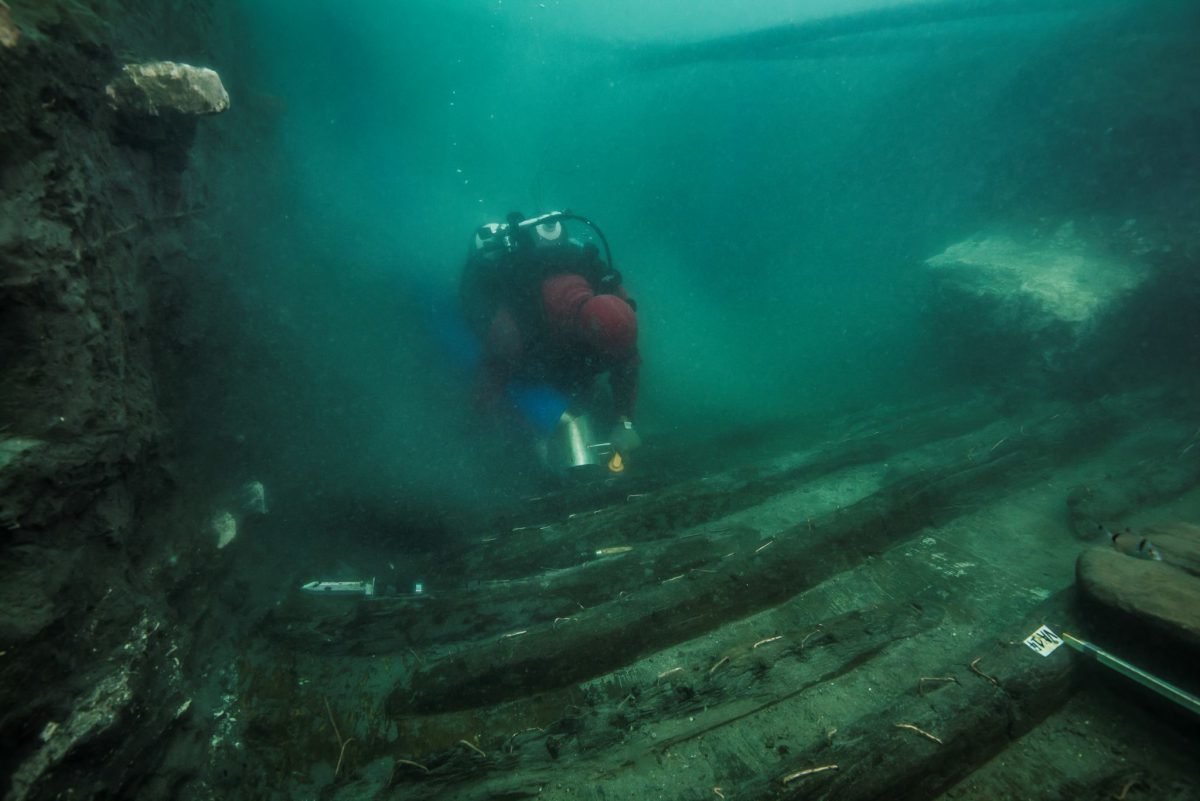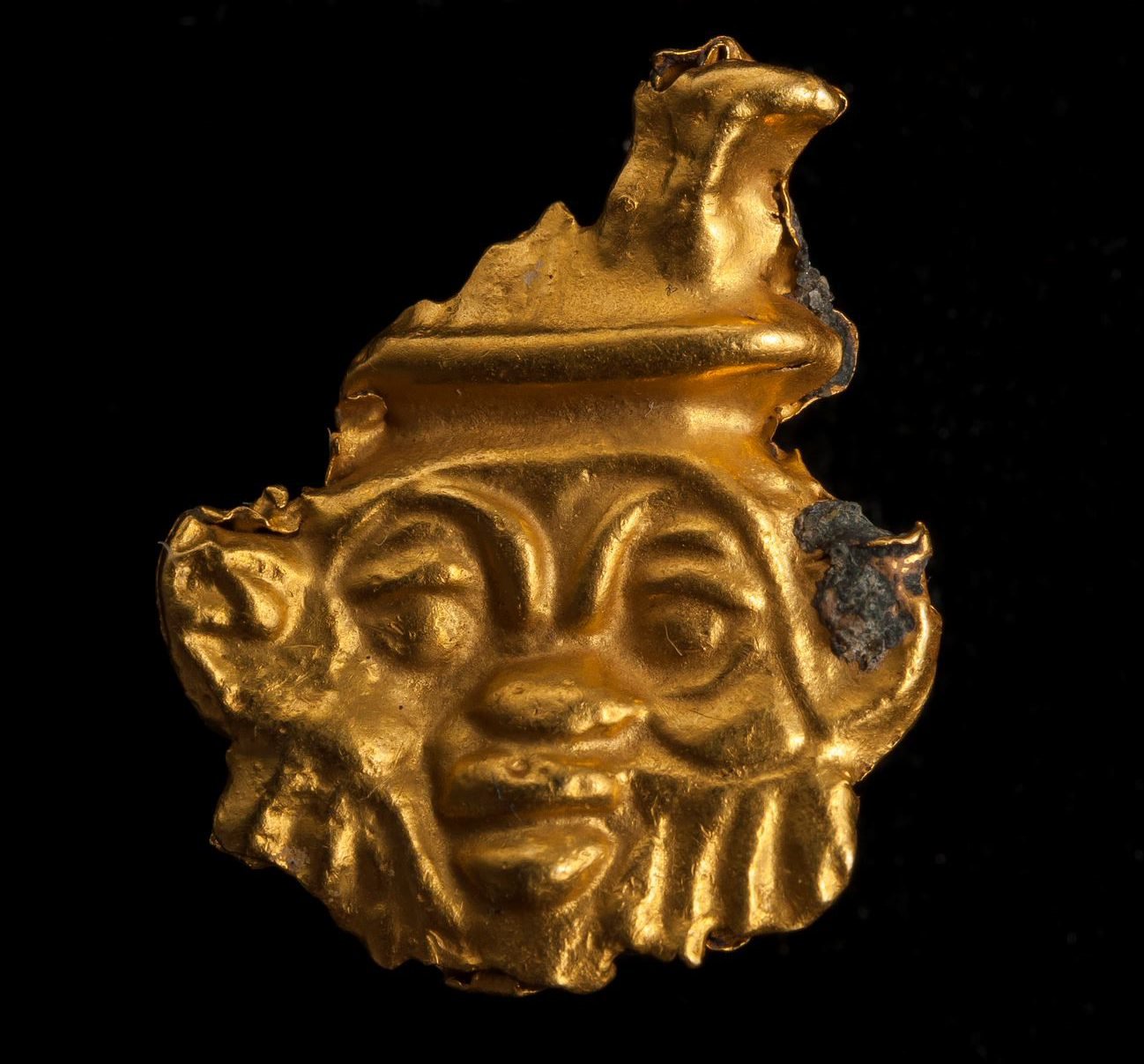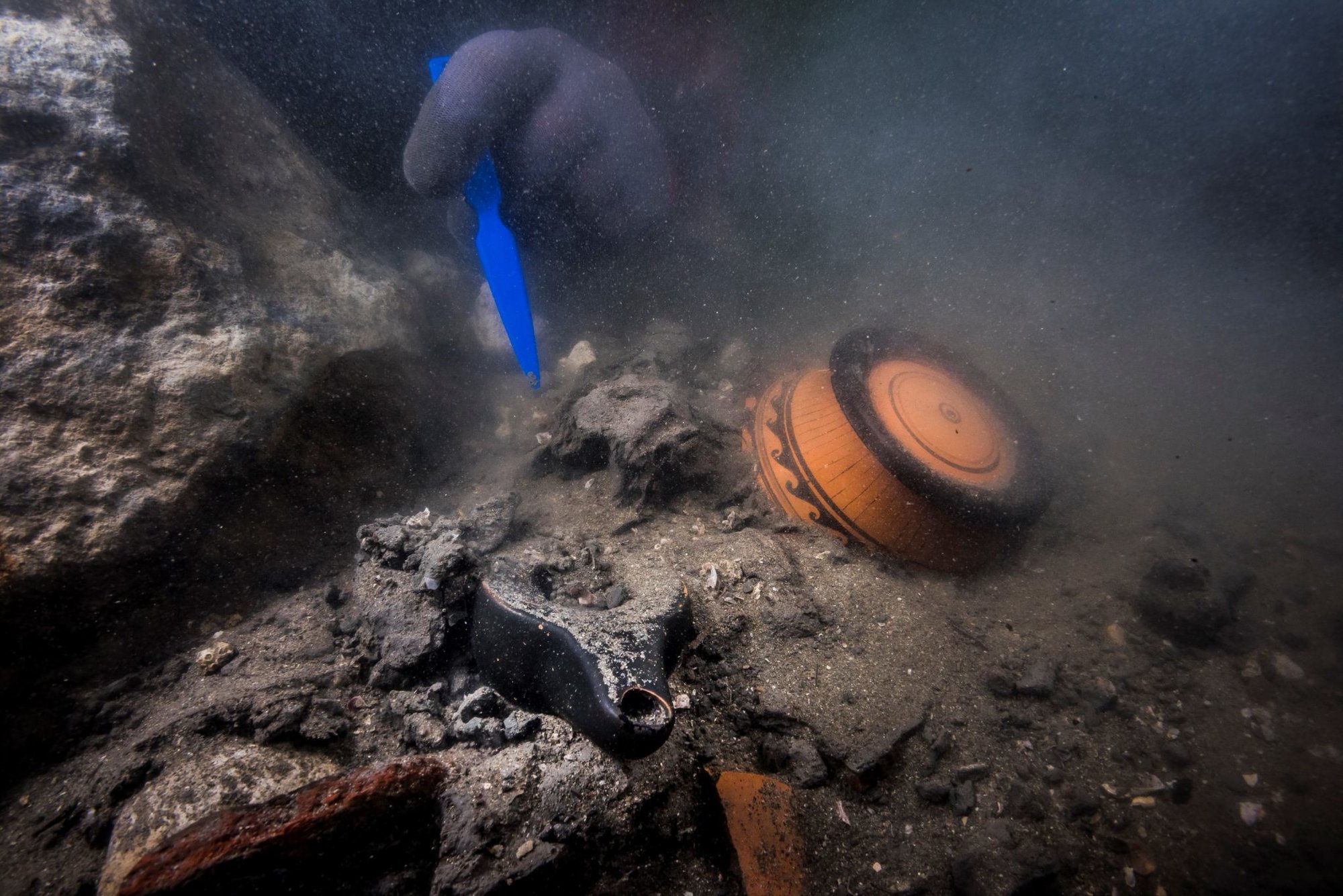
Huge blocks of the destroyed temple of Amun in Thonis-Heracleion fell on top of a galley that was moored alongside and sank her in the second century B.C. Photo courtesy Christoph Gerigk, © FranckGoddio/Hilti Foundation. Used with permission.
No, Thonis-Heracleion is not Atlantis, although it truly is a lost city.
The ancient Egyptian port was inhabited for hundreds of years before Alexander the Great founded the nearby city of Alexandria in 331 B.C. after his army’s conquest of Egypt. Though not the legendary sunken city of Plato’s imagination, Thonis-Heracleion has a history strikingly similar to how the legend of Atlantis ended — beneath the sea after an apocalyptic disaster.
French marine archaeologist Franck Goddio discovered Thonis-Heracleion in 1999, east of Alexandria in Abu Qir bay. Egyptians called the city Thonis. Its Greek inhabitants called it Heracleion.
In a recent interview with The Guardian, Goddio, who is head of the European Institute for Underwater Archaeology, or IEASM, described the discovery of 2,400-year-old baskets of ancient doum palm fruit, still sealed and relatively intact — though definitely not safe for consumption — a testament to the site’s remarkably preserved condition.
The IEASM has extensively researched the site for the last two decades, but Goddio estimates that they’ve only discovered some 3% of the artifacts likely remaining there.

In the interview, Goddio described finding evidence that suggested extensive burning, possibly in connection to funeral rites. According to what archaeologists have found at the underwater site, Thonis-Heracleion was a major religious center, with temples dedicated to Zeus, Hercules, and the Egyptian god Amun.
The burned temple goods appeared “to have been sealed for hundreds of years as none of the artefacts found were from later than the early fourth century, even though the city lived on for several hundred years,” according to what Goddio told The Guardian.
Goddio added: “That site has been used maybe one time, never touched before, never touched after, for a reason that we cannot understand for the time being. It’s a big mystery.”

Archaeologists also located the shipwreck of a Ptolemaic galley called a “baris” — a ship built to navigate the shallow waters of the Nile delta. The galley sank after the temple of Amun’s colossal stones hit the ship as the structure crumbled dramatically during a cataclysmic earthquake in the second century B.C.
“The finds of fast galleys from this period remain extremely rare,” Goddio said in a July newsletter. “This long boat was flat-bottomed and had a flat keel, which was quite advantageous for navigation on the Nile and in the Delta.”
Around 150 B.C., an earthquake followed by a massive tidal wave spectacularly annihilated Thonis-Heracleion. The earthquake shook the ground so hard that water from the Mediterranean mixed with the soil, creating quicksand. In a phenomenon known as soil liquefaction, the city sunk into the newly formed quicksand.
Although the entire city sank into the liquified earth, some pieces survived. According to Goddio: “Some islands remained above water. In the sixth century A.D., a convent of nuns was built on one of those islets. But in the eighth century A.D., a second major earthquake totally destroyed the city.”
Goddio, who plans to continue researching the site, expects many new discoveries await beneath the submerged soil.
Read Next:

Lauren Coontz is a former staff writer for Coffee or Die Magazine. Beaches are preferred, but Lauren calls the Rocky Mountains of Utah home. You can usually find her in an art museum, at an archaeology site, or checking out local nightlife like drag shows and cocktail bars (gin is key). A student of history, Lauren is an Army veteran who worked all over the world and loves to travel to see the old stuff the history books only give a sentence to. She likes medium roast coffee and sometimes, like a sinner, adds sweet cream to it.
BRCC and Bad Moon Print Press team up for an exclusive, limited-edition T-shirt design!
BRCC partners with Team Room Design for an exclusive T-shirt release!
Thirty Seconds Out has partnered with BRCC for an exclusive shirt design invoking the God of Winter.
Lucas O'Hara of Grizzly Forge has teamed up with BRCC for a badass, exclusive Shirt Club T-shirt design featuring his most popular knife and tiomahawk.
Coffee or Die sits down with one of the graphic designers behind Black Rifle Coffee's signature look and vibe.
Biden will award the Medal of Honor to a Vietnam War Army helicopter pilot who risked his life to save a reconnaissance team from almost certain death.
Ever wonder how much Jack Mandaville would f*ck sh*t up if he went back in time? The American Revolution didn't even see him coming.
A nearly 200-year-old West Point time capsule that at first appeared to yield little more than dust contains hidden treasure, the US Military Academy said.












